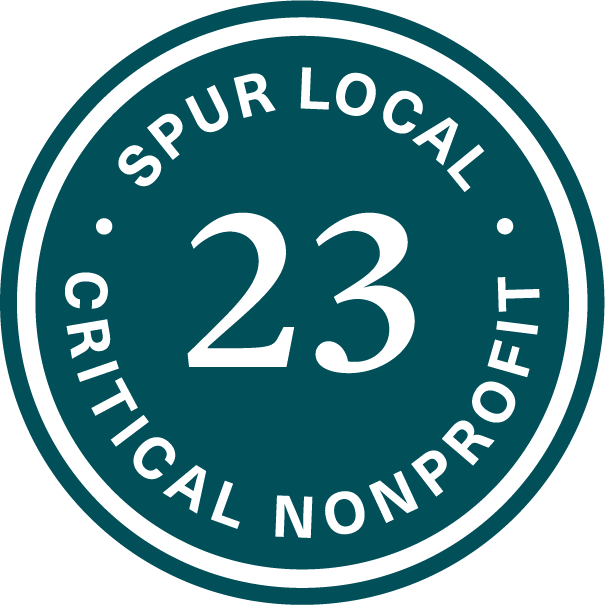Digital Library

"Expungement" is frequently the term used for the process of erasing an individual's criminal record – the official records regarding arrests and/or a conviction -- to afford citizens the opportunity to put past contact with the criminal justice system behind them. The Council for Court Excellence (CCE) undertook to address the subject of expungement and to prepare a report that would summarize the existing state of the law, discuss key issues, and set forth options that the Council of the District of Columbia might wish to consider in enacting legislation on the subject. Download the legislation here.

This report by G. Thomas Munsterman of the National Center for State Courts, presents concrete steps to expand citizen participation in jury service. The report describes the current process by which District of Columbia citizens are summoned to jury service, and it suggests governmental reforms to increase the proportion of summoned citizens who actually serve.
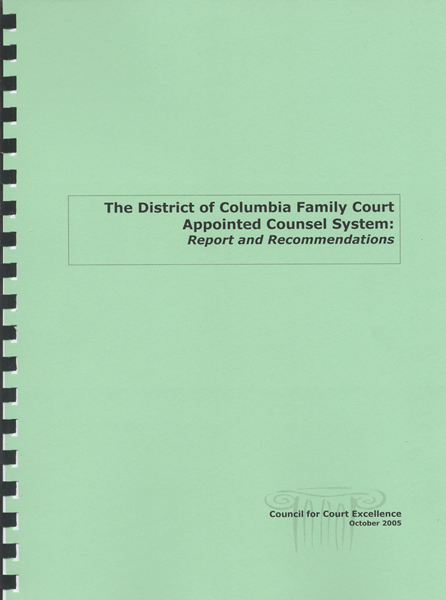
The report is a comprehensive analysis of the District of Columbia's system for providing lawyers to represent all children and indigent adults in child neglect court proceedings. Such representation has been guaranteed by DC law for twenty years and is a far more comprehensive legal safety net than in many jurisdictions in the nation. This CCE report builds on four studies published by the DC Bar since 1975 of Superior Court appointed counsel systems for criminal and family cases, and it traces the results of the most recent of the four studies, the Muse Report of 1993.
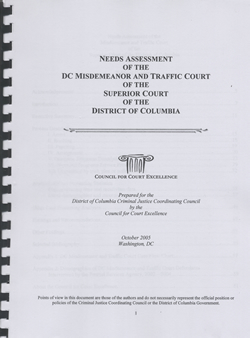
In September 2004, the Council for Court Excellence received a contract from the DC Criminal Justice Coordinating Council to perform a needs assessment of the DC Superior Court DC Misdemeanor and Traffic Court. This Court is one of two community courts created as a result of a recommendation by the Council for Court Excellence and the Justice Management Institute publication A Roadmap To A Better Criminal Justice System (April 2001), which can be downloaded here.
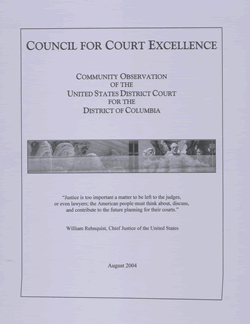
This report is the fruit of the project that was developed by CCE's Public Service Committee. It is the first observation project of a federal courthouse in the nation, and third court observation project overall for CCE. The previous two projects in 2001 and 2002 were held at the Superior Court of the District of Columbia's criminal and civil divisions.
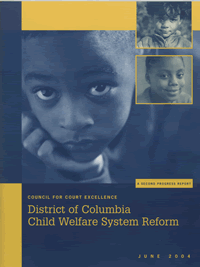
This report, designed for the public, summarizes the findings in CCE’s detailed report to Congress dated May 6, 2004 on the performance of the DC child welfare system. It contains findings and analysis on the city’s compliance with the federal and DC Adoption and Safe Families Acts and the DC Family Court Act. It concludes with a list of recommendations for improvement as well as a list of issues requiring further study.
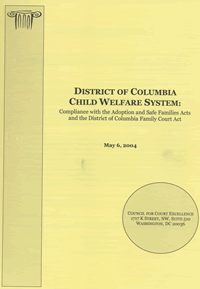
This is CCE's second public progress report on DC's child welfare system. This report is issued at the direction of Congress who in early 2003 provided CCE with funding and a mandate to "Continue independent oversight... [of the system and to provide]...an annual report to Congress on the implementation of the DC Family Court Act of 2001 and the [federal] Adoption and Safe Families Act of 1997 (ASFA)."
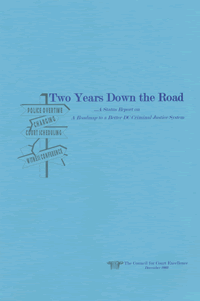
This report examines the progress made by the DC criminal justice system to implement the 27 recommendations of the Council for Court Excellence’s 2001 study, entitled A Roadmap to a Better DC Criminal Justice System. Two Years Down the Road found that progress had been made to re-engineer misdemeanor case processing, but that felony cases were being processed much the same way as reported in 2001.
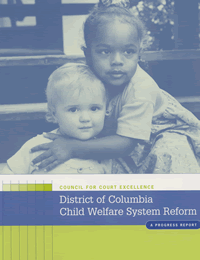
This report has two purposes: a) to increase public accountability of the District of Columbia's child abuse and neglect system, and b) to increase the community's understanding of that system. This is the CCE's first public report on the progress made by the leaders of the DC child welfare system to bring the District of Columbia into compliance with the federal and local Adoption and Safe Families Acts ("ASFA"). Please call 202.785.5917 to order over the phone.
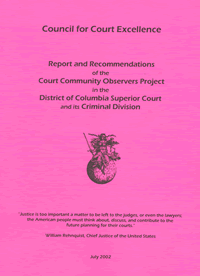
The court community observers project used trained community volunteers to observe individual DC Superior Court criminal court hearings and related court functions during the spring of 2002. Volunteers recorded their observations and the Council for Court Excellence published the major findings in this report to the courts and to the community. Please call 202.785.5917 to order over the phone.


